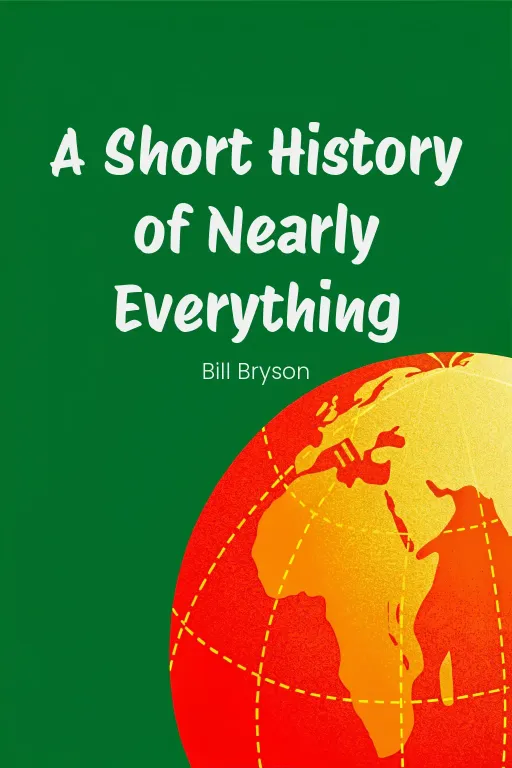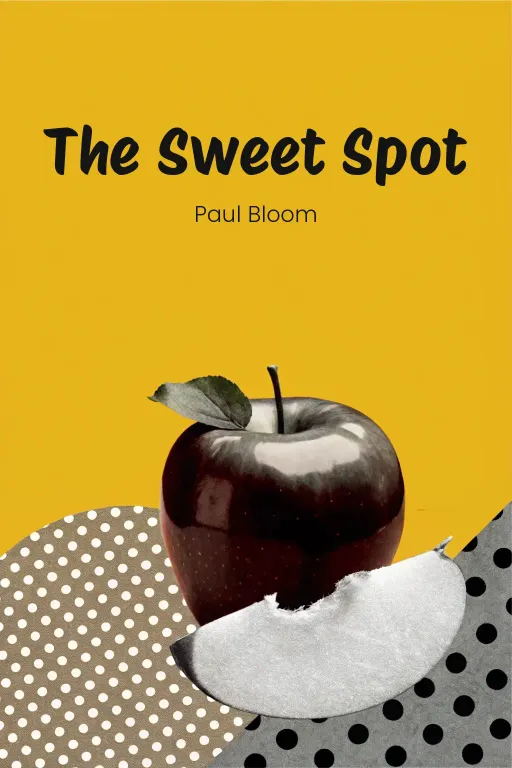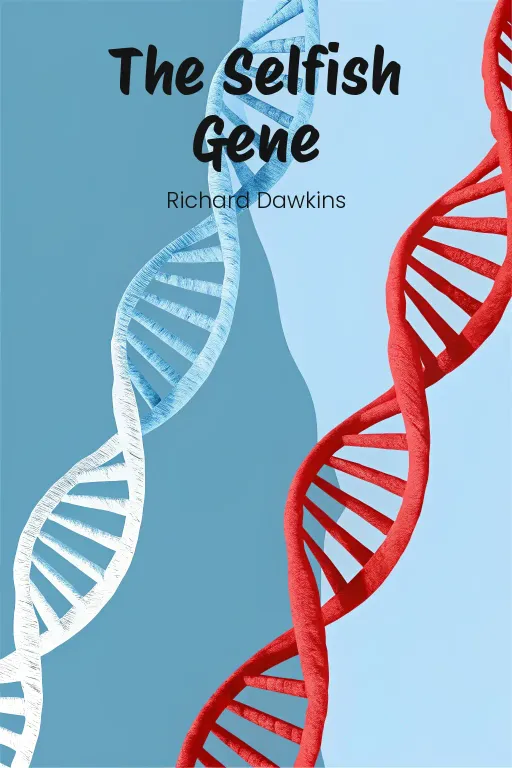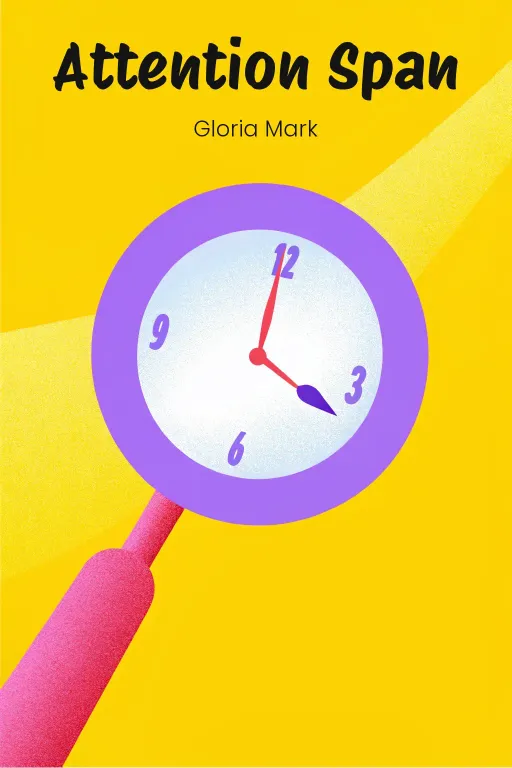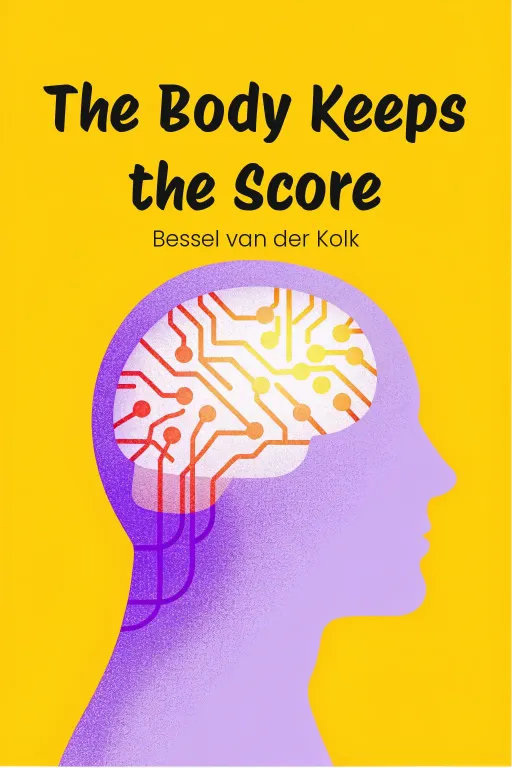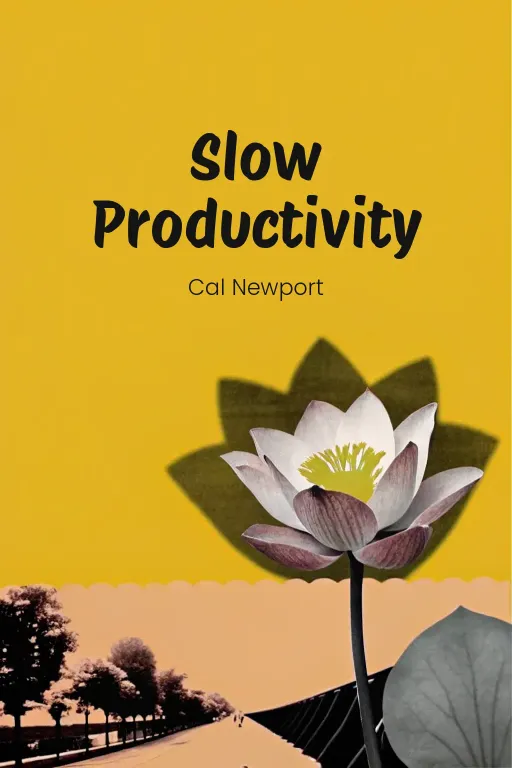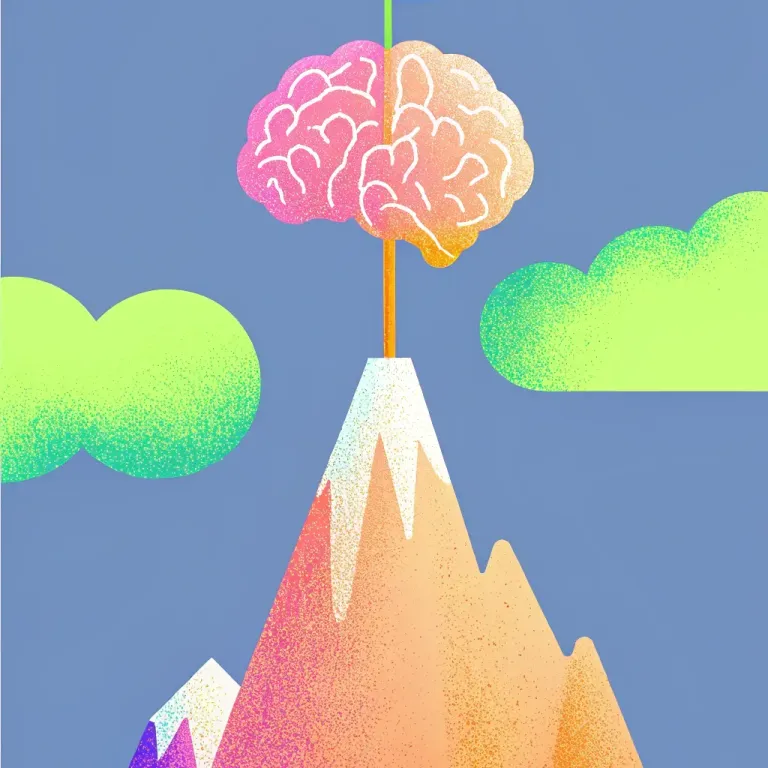
Sharpen Focus: Train Your A.D.D. Brain
Podcast by Wired In with Josh and Drew
Find Your Focus, Own Your Attention, 12 Minutes a Day
Introduction
Part 1
Josh: So, Drew, heard you've been complaining about your brain being a bit... slow lately? Drew: <Laughs> Josh, “buffering” is the technical term, okay? Like my brain's constantly waiting for the signal to catch up. Josh: Well, maybe it's not your brain's fault; maybe it's your attention that needs an upgrade! There’s this book, Peak Mind by Amishi Jha, that might just be the fix we both need. Drew: “Rescue”? That's a pretty strong word. I mean, let's be real, attention spans these days are basically non-existent. Phones, notifications, the endless barrage of emails... What's her argument? Josh: Okay, so she basically says our attention is like a flashlight, right? And these days, most of us are just waving it around wildly, chasing after every little flicker of distraction. The book dives into the science behind why this happens but more importantly, gives practical advice on how mindfulness can help us refocus. Drew: Mindfulness? Seriously? So you're telling me I don't need a new productivity app, or a stronger dose of caffeine? Just... sitting quietly? Josh: Well, there's a bit more to it than just sitting quietly, but essentially, yes! Jha's got like, 25 years of neuroscience backing her up. She argues that even just twelve minutes a day of consistent mindfulness practice can make a huge difference to your ability to focus, regulate your emotions, make better decisions, and even strengthen your relationships. It's quite amazing. Drew: Alright, color me intrigued. But what’s in it for me, like, right now? Josh: Great question! Today, we're going to unpack it in three parts. First, we'll get into the mechanics of your attention system because it's way more complex than you probably think. Then, we'll explore how mindfulness acts as a kind of shield, protecting you from all those digital distractions. And finally, we'll give you some super practical tips on how to weave mindfulness into your daily life without completely upending it. Small steps, big difference, hopefully! Drew: A lot of brainpower needed in this episode! Alright, Josh, let's see if you can keep my flashlight beam steady. No promises, though!
The Fundamentals of Attention
Part 2
Josh: Okay, Drew, let’s shine a light, shall we, on the very foundation of our discussion: the fundamentals of attention itself. If you don't really grasp “what” attention is and “why” it's so easily depleted, then everything else we talk about will just, well, not stick. Think of this as the core blueprint for everything that follows. Drew: Alright, Josh, I'm game. But attention is just, you know, focusing, right? What's so complicated that it needs a blueprint? Josh: Oh, it's way more complex than that! Attention isn't simply focus; it's this limited mental resource that dictates how we perceive and interact with the world around us. Imagine it as the gatekeeper controlling your experiences, emotions, and even how you make decisions. Now, here's the twist: it operates through three major systems: a flashlight, a floodlight, and a juggler. Each one plays a unique role, and each has its own weaknesses. Drew: Three systems, really? Did my brain suddenly become so... high-maintenance? Okay, start with this flashlight you keep mentioning; what exactly does it do? Josh: The flashlight is your focused attention. It is literally like a beam of directed light, that hones in to a specific task while dimming everything else in the background. Picture yourself engrossed in a really good book in a bustling coffee shop. Your flashlight focus is locked on the story, and the sounds of cups clinking, conversations around you? Just fades away into background noise. Drew: Right, it's like singling out a tree in the forest. But if it's so good at focusing, then why is it so impossible to maintain? One tiny notification and poof, I'm gone! Josh: Exactly – you hit the nail on the head. See, flashlight attention is powerful, but it's also surprisingly fragile. The second anything shiny or new, like a notification, crosses its path, you instantly get pulled away. Scientists actually call this mental hijacking. That’s exactly why a quick scroll on your phone can completely sabotage an entire work session, leaving the flashlight burning brightly, just pointed in a wildly unproductive direction. Drew: So, basically, my brain's spotlight operator is terrible at ignoring, uh, hecklers. Josh: <Laughs> Well, that's one way of putting it. Now, let's shift to the floodlight system. While that flashlight is like narrowing your vision, the floodlight is about seeing everything at once. It's the broad overview that keeps you alert to what's changing around you. Drew: That's like walking through a really packed street market, right? You're concentrating on where you're going but also aware enough to, say, dodge a bike that’s speeding past or maybe spot that street performer. Josh: Precisely! Floodlight attention is what keeps you safe in a dynamic environment. It's particularly useful when you’re in high-pressure situations, like driving. Because you can’t realistically scan every single detail on the road, your floodlight ensures that you’re still aware enough to notice when a car drifts into your lane. But it's a trade-off: too much input, too much information, and it gets overwhelmed. That's precisely why chaotic, busy places, like a super noisy classroom or a crowded event, will leave people feeling, you know, frazzled and exhausted. Drew: So the floodlight is great... until it's blinded by overstimulation. I guess that explains airports! The last time I was looking for my gate, I was distracted by everything from duty-free perfume to announcements for flights I wasn’t even taking. Josh: Exactly, and that's a perfect example of why attention can feel so scattered at times. Which brings us to the juggler—the third system. Imagine this one as your brain's task-switcher, the part responsible for managing multiple demands on your limited attention and keeping your priorities straight. Drew: Ah, the juggler... or as I like to call it, "me, every Monday morning!" This is multitasking, then? Josh: Sort of, yes. The juggler allows you to shift smoothly between tasks, like a project manager—monitoring emails, jumping into meetings, solving unexpected problems. But the truth is, multitasking itself is kind of a myth! I mean, the juggler isn’t really doing tasks simultaneously; it's just jumping back and forth, and that, my friend, is absolutely exhausting. Drew: Correct, because every time I’m writing a report and, say, half-listening to a podcast, I end up doing a terrible job at both! So it’s that mental fatigue, right? The more I switch, the worse it gets. Josh: Exactly! Cognitive switching is actually pretty costly, especially since the brain has to recalibrate every time you shift focus. That’s why juggling tasks while driving —like texting—is so incredibly dangerous. Because a split-second of mismanaged attention can lead to real disaster. Drew: Alright, so between my super-fragile flashlight, my easily frazzled floodlight, and my overworked juggler, it’s clear that my attention system is... far from invincible. But why is it “so” shaky to begin with, huh? Josh: Well, that’s where its power and its fragility actually collide. Attention is remarkably adaptive—it can either zoom in or step back as needed—but it’s also finite. Modern life, though, it has put it under relentless strain. Did you know, for instance, that studies show we spend almost half our day on autopilot? Basically, for half your waking hours, your mind is wandering. You’re physically present, but mentally somewhere else entirely. Drew: Half my day? That can’t be right! So, in theory, I could be making coffee while mentally arguing with someone about last week's meeting, and missing the whole process. That would actually explain my burnt toast... Josh: Yep, precisely! But this disconnection doesn’t just create inconveniences—it impacts everything, from your relationships to your job. When your attention is scattered, you're not completely present with the people around you or even the tasks you’re doing. And stress just makes everything worse, because it eats up even more of your already limited resources. It’s a really vicious cycle. Drew: Alright, let me guess: this is where you drop some mindfulness wisdom and tell me we can actually fix it? Josh: You’re totally catching on! But first, just understanding these systems—and seeing how they break down under pressure—really sets the stage for what's next: which is, using mindfulness to not only protect, but also train and even strengthen this incredible resource.
Mindfulness as a Transformative Tool
Part 3
Drew: Okay, so we're at the "fix it" stage. You've convinced me: attention's a disaster, and modern life's a distraction Olympics. Now, how does mindfulness actually fix things? Josh: Right, well, seeing how attention gets hijacked naturally leads us to mindfulness as a fix. And honestly, it's more than just some fluffy, feel-good practice. Think of it as mental strength training. We're building on how attention works by looking at mindfulness as a real, proven way to boost our mental and emotional toughness. Drew: Okay, I'm listening. But what's the plan? If it's just about candles and deep breaths, you'll need some serious evidence here. Josh: Oh, it's much more practical and research-backed than that. Mindfulness is really about focusing on the present, on purpose, and without judgment. We use things like breath awareness, body scans, and even loving-kindness meditation. These aren’t just quick fixes; they actually change how your brain deals with distractions, stress, and emotions for the long term. Drew: Sounds promising. Let's tackle breath awareness. It's everywhere in mindfulness. Why does focusing on my breath suddenly solve everything? Josh: Breath awareness is like giving your mind an anchor in a storm. You focus on the sensation of breathing – air in your nose, chest rising – and when your mind wanders, you gently bring it back. Think of it like exercising a muscle. Each time you notice your mind drifting and bring it back? You're building focus. Drew: Alright, but what about when the pressure's on? I need something that works outside a yoga studio. Josh: Think about firefighters in super stressful, life-or-death situations. They use breath awareness to build focus over time. So, when the adrenaline hits – when many would panic – they use their breath to stay grounded. This helps them stay calm and focused, even when chaos breaks out. Training like this actually changes the brain to handle pressure better. Drew: Okay, a cool firefighter is impressive. But what if stress is physical – tense muscles, clenched jaw? Breathing won't magically fix that. Josh: Exactly. That’s where body scans come in. You methodically move your attention through your body – toes to head – tuning into sensations like tightness. It's reconnecting with how stress shows up in your body, and noticing it without judging it. Drew: So, it's finally noticing what your body's been screaming: “Hey, I'm stressed!” all along? Josh: Precisely! For example, one study had teachers in a high-stress school do body scans during an eight-week program. By spotting early stress signs – tight shoulders, shallow breathing – they could pause, reset, and go back to the classroom with a clearer focus. It's about stopping the stress early, before things get crazy. Drew: Alright, but what if the stress isn't me? What if it's the people around me driving me nuts? Josh: Then you use loving-kindness meditation – which is all about building compassion and empathy. You silently repeat phrases like, "May I be happy. May they be happy." You start with yourself, then loved ones, strangers, even difficult people. Over time, it builds emotional resilience and healthier relationships. Drew: Happy thoughts for everyone, even people I dislike? Sounds like hugging my enemies. Josh: I know it seems weird, but it works. Picture a military leader managing tough talks with tribal leaders in Iraq. Loving-kindness helped him swap knee-jerk judgments with genuine openness. This built trust, turning potential fights into productive talks. It wasn't just words – it was his mindfulness grounding him and reshaping how he interacted. Drew: I see how avoiding blow-ups benefits. But even if I'm not negotiating peace deals, does mindfulness still matter? Josh: Definitely. Even outside crazy situations, mindfulness changes how your brain deals with everyday stress. Research shows it clears what we call the "mental whiteboard." Stress and distractions fill up your working memory, making it harder to think clearly. Mindfulness isn't magic – it's a solid way to clear that space for better focus. Drew: I need proof. How does this work in real life? Josh: Well, in one study with teachers, those in an eight-week mindfulness program scored way higher on working memory tests than those who didn't. Under stress, even tasks like remembering sequences were easier for the mindfulness group. And, undergrads at UCSB also saw big improvements in reading comprehension and memory after just two weeks of training, which boosted their school performance. Drew: Fine, the science is there. But what about those messy emotions, like a meltdown at work? Josh: Emotional regulation is maybe mindfulness's biggest gift. One healthcare worker talked about how it helped during a workplace conflict with a problem employee. Before mindfulness, she might have reacted with anger, making things worse. Instead, by practicing body scans and breath awareness, she paused, noticed her feelings, and approached the talk calmly. That turned a potential fight into a productive conversation. Drew: So, mindfulness helps you manage emotions instead of just reacting. That's like emotional judo – using calmness to flip a conflict on its head. Josh: I love that! It's about creating space between what happens and how you respond, finding clarity before you act. And the effect goes further. Leaders who show mindfulness inspire better personal results and positive changes in their teams. There's this ripple effect of attentiveness, empathy, and resilience that benefits everyone. Drew: That's a lot to take in. From firefighters to corporate leaders, mindfulness does seem to have benefits. Maybe worth a try, even if it sounds easier said than done.
Applying Mindfulness in Daily Life
Part 4
Josh: So, now that we’ve established mindfulness as this powerful practice, the real challenge is, how do we actually use it in our daily lives? I mean, we’re talking about taking these concepts that sound amazing in theory and applying them to, well, the messy reality of our routines, our stress, our relationships. How does it actually stick? Drew: Right, so I'm already trying to get my head around the fact that my brain's basically a chaotic juggling act, and on top of that, you're saying I need to figure out how to sneak mindfulness into my life without looking like I'm auditioning for a wellness commercial during my coffee break. Josh: Exactly! And the great thing is, mindfulness doesn't need some grand setting. It’s about weaving it into the small, everyday moments. And that's where the magic happens—turning something as mundane as your commute or brushing your teeth into an opportunity to be present. Drew: Hold on, brushing my teeth? I’ve been doing that automatically for like, decades. What am I missing? Is there some secret mindful brushing technique? Josh: <Laughs> Not really a "technique," per se. It's more about where you're directing your attention. There’s this story Dr. Amishi Jha shares about her meditation teacher, who introduced her to this practice called the "no overlooked people" exercise. Instead of just zoning out while you're on the train or waiting in line, you intentionally send silent wishes for happiness to the people around you. You know, things like "May you be happy, may you be safe." It’s a quiet, internal way of connecting, that kind of preps your mind for compassion. Drew: So, I'm silently sending good vibes to the guy who just elbowed me for a seat… Sounds a bit out there. Does that really do anything? Josh: Absolutely! Dr. Jha found it transformed those ordinary, isolated moments into opportunities for connection. Instead of getting hung up on frustration, you actually soften your own responses, which then improves your sense of well-being. It’s mindfulness in action: redirecting thoughts from annoyance to compassion. And actually recalibrates how you see people, and how you feel, which is pretty neat. Drew: Okay, fair enough. Silent subway blessings are nice, but what about when you’re facing something you can’t just "good vibe" away? Take yoga, for example. I’m sweating, trying not to faceplant during warrior pose, and the last thing on my mind is, “Ommm.” Josh: That's where mindfulness goes deeper! Physical activities, yoga, running, even just walking, offer phenomenal opportunities for mindful engagement. The trick is to anchor your attention to your body. When you're walking mindfully, you focus on the rhythm of your steps, the air on your skin. And yes, even when things get tough—you know, "suck moments"—mindfulness can really help. Drew: Oh, I like this already – "embracing the suck," right? Sounds like some motivational poster they'd put up at SEAL Team training. Josh: You’re not far off! That phrase comes from military training, and it fits perfectly here. The idea is that discomfort, whether it's physical or mental, doesn't have to throw you off course. It can actually signal progress. Think about marathon training: you focus mindfully on your breathing, the movement of your body, instead of fixating on the pain. Over time, that builds resilience and mental strength. Drew: So, mindfulness is basically tough love for your brain, got it. Now, what about when the pressure isn't physical? Say it's emotional, like a really tense confrontation. How does mindfulness play out then? Josh: That's where mindfulness becomes a tool for emotional regulation. Let me share an example: Lieutenant General Walt Piatt was in a really volatile meeting with tribal leaders in Iraq. Seriously high-stakes situation where one wrong move could escalate things. Instead of getting defensive , or trying to dominate, he practiced mindful listening. He “really” tuned into what they were saying, their tone, their emotions, and would reflect back, "I hear your frustration." It built trust and defused the tension. Drew: So basically, he grabbed his flashlight, focused it on the emotions in the room, and resisted the impulse to argue louder. Is that right? Josh: Exactly. Mindful listening isn't about fixing things immediately, but it’s about reframing the situation. By stepping back from your initial impulses, you create space for empathy and understanding. Piatt's approach highlights how mindfulness can alter not just your own reactions, but also the whole dynamic of the interaction, turning potential conflict into collaboration. Drew: Okay, Piatt's a general… Fair enough, but not all of us are trying to broker peace. What if I'm just dealing with something smaller scale, like workplace tension or family drama. Is there, like, a pocket-sized version of this technique? Josh: Absolutely. Simple mindfulness practices, like just pausing and noticing your emotions before you react, can be transformative. I remember this MBA student, who was in a mindfulness program, actually used a noisy office as an opportunity to practice. Instead of getting annoyed, and letting it derail his focus, he paused, observed how he felt, and then calmly got back to the meeting. That little bit of awareness stopped a whole chain of negativity. Drew: Mindfulness as a pressure valve, releasing just enough steam, so the whole thing doesn't explode. But does it “really” have a lasting effect? Isn't everyone just going to revert back to snapping at their coworkers eventually? Josh: You know, studies actually show that consistent mindfulness can rewire your brain. The “real” key is repetition. You build this habit of checking in with yourself, which makes your emotional responses less automatic. That sets the stage for better relationships and greater empathy. Some studies even show that leaders who practice mindfulness inspire more trust and cooperation from their teams. Drew: Alright, you've convinced me. Mindfulness isn't just sitting in silence. It's about showing up in all the loud, messy parts of life too. So, what's the takeaway here? Am I supposed to start sprinkling mindfulness dust on every single interaction I have? Josh: <Laughs> Well, think of it less as "sprinkling" and more as layering. Whether it's through mindful commutes, pushing through physical challenges, or doing deep emotional work, you're actually building a foundation of attentional presence. It's not about being perfect all the time, it's about being consistent, and “really” reclaiming the richness of the moment – whether it's in the simplest tasks or in life's most challenging situations.
Conclusion
Part 5
Josh: So, to wrap things up, we've really dug into how attention—that flashlight, floodlight, and juggling act all in one—shapes our entire experience of the world. And while distractions, stress, they can drain that battery, mindfulness is really giving us the tools to recharge, to protect it. Ultimately, it helps us stay present and, you know, resilient. Drew: It’s pretty amazing to me how actionable all of this is. I mean, from just focusing on your breath for a bit to taking a mindful walk—or heck, even sending a little mental goodwill to that person who cuts you off. These are small tweaks that seem to build real mental muscle. It's not about, you know, completely overhauling your existence; it's more about being present in the moments that actually count. Josh: Absolutely. And if there's one thing I hope people take away from this, it's that attention isn’t unlimited, but we can train it. Mindfulness is an invitation to take charge of this really valuable resource, and it not only sharpens our focus and emotional regulation, but it also enriches the quality of our relationships and how we experience life. It’s about being here, now, fully engaged. Drew: Okay, everyone, here’s the call to action—start tiny. Maybe take 30 seconds today to just pause, feel your breath, notice your feet hitting the ground as you walk. Trust me, that mental flashlight could use some new batteries. And listen, if mindfulness works for Navy SEALs and those people who negotiate world peace, it just might do something for us regular folks, too. What do you think? Have you seen any personal benefit of practicing this?

